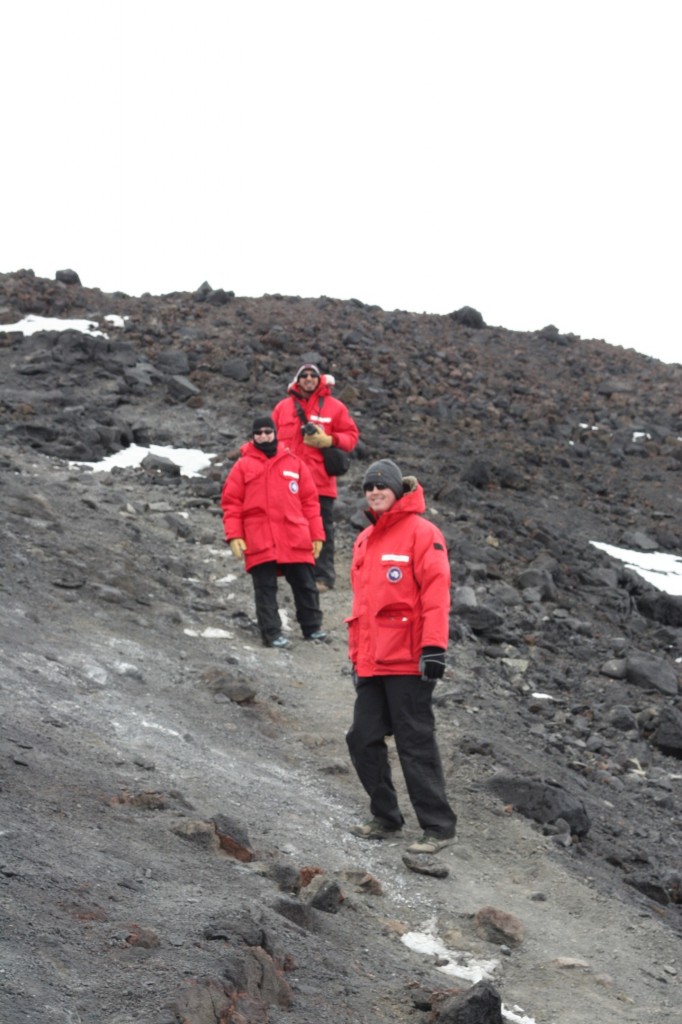This is a belated post of a fun event from a couple weeks ago: we took a Sunday hike up into the hills around the station. It was great to take a break from the work out at the highbay, and get some exercise. There was still a fair bit of snow around covering the volcanic rock of which this island is made, but not so much as to make the hiking at all difficult. It was pretty chilly, and very windy, up in the hills – here you see my three hiking companions (Sean, Johanna, and Jamil, from bottom to top) bundled up, as we trundled up a trail along a ridge.
From our first stop, Hut Point, we looked down on seals resting on the sea ice. They spend hours and hours in one spot; I’ve never seen one even heading toward their hole in the ice, to go off and hunt!
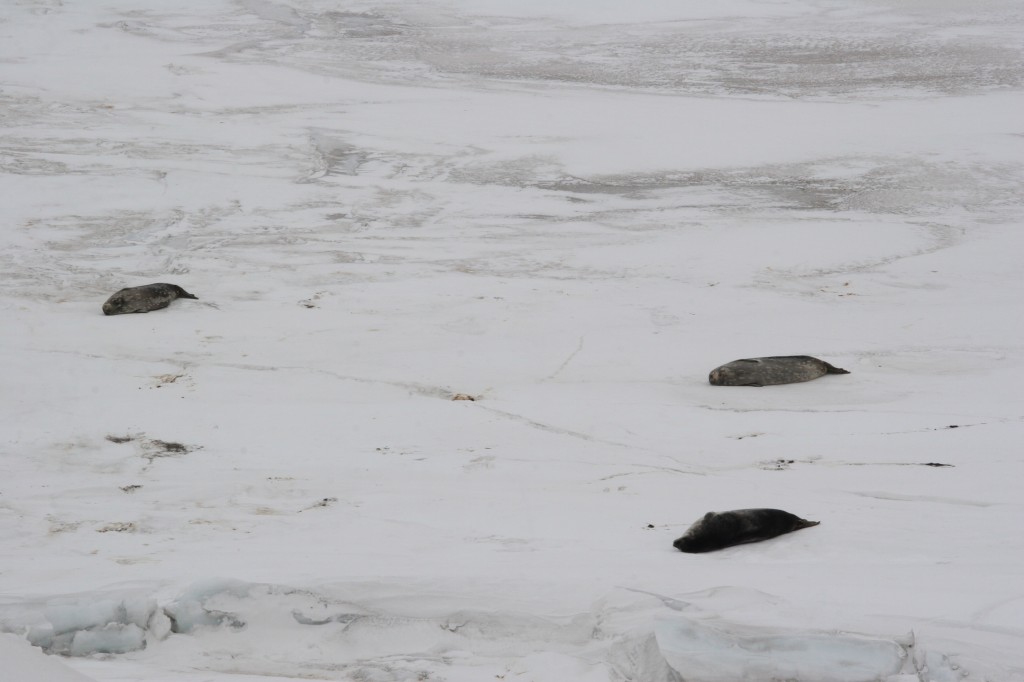
Turning around, the view from Hut Point includes the front “shore” of the station, as well as the nearly 100 year old hut of Robert Scott, known, of course, as “Scott’s Hut”. 🙂
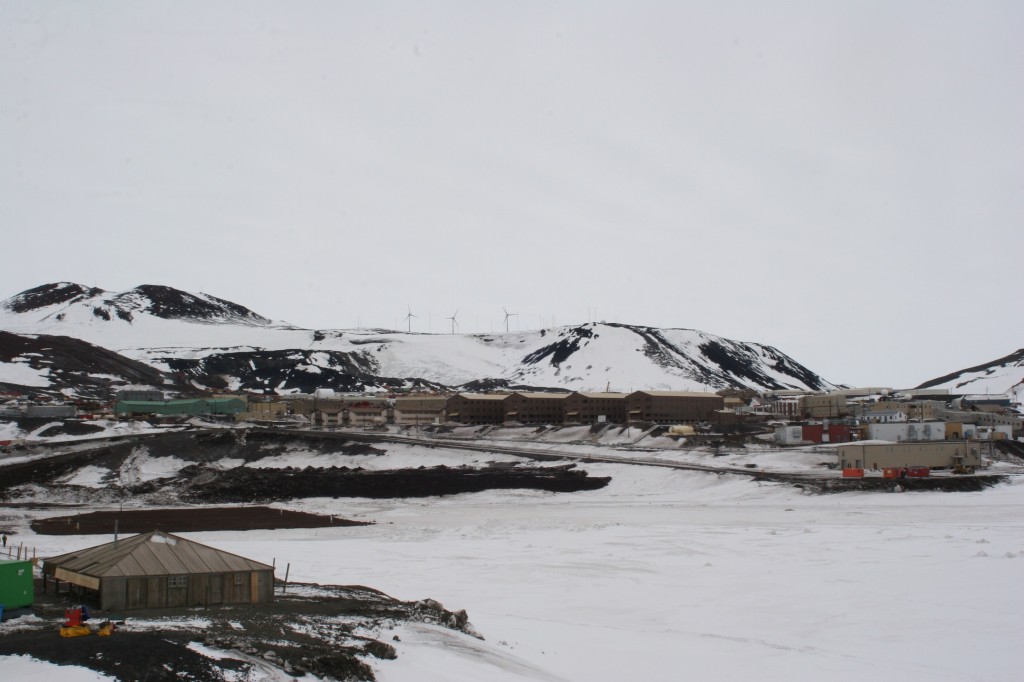
The trail went up along a ridge that overlooked the sea ice, which provided a beautiful view. We saw a field party returning to the station on their snowmobiles, traveling along the sea ice. (Watch out for cracks!) The field party in the bottom right of the picture below helps set the scale of this place, which is just immense.
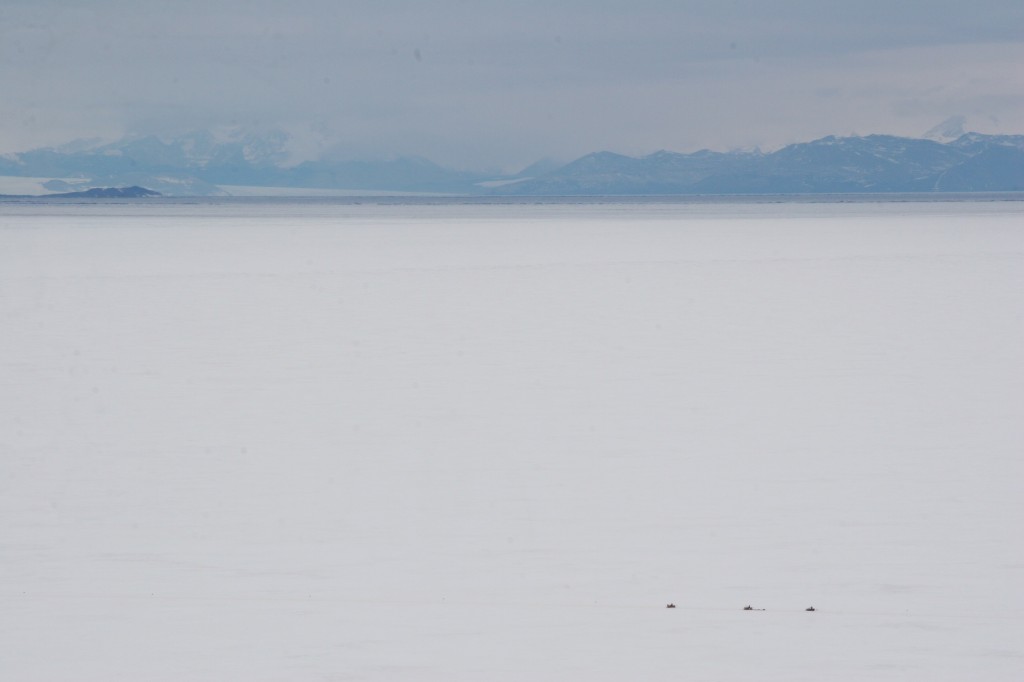
Looking back along the way from which we came, we saw Scott’s Hut and Hut Point, and more seals below.
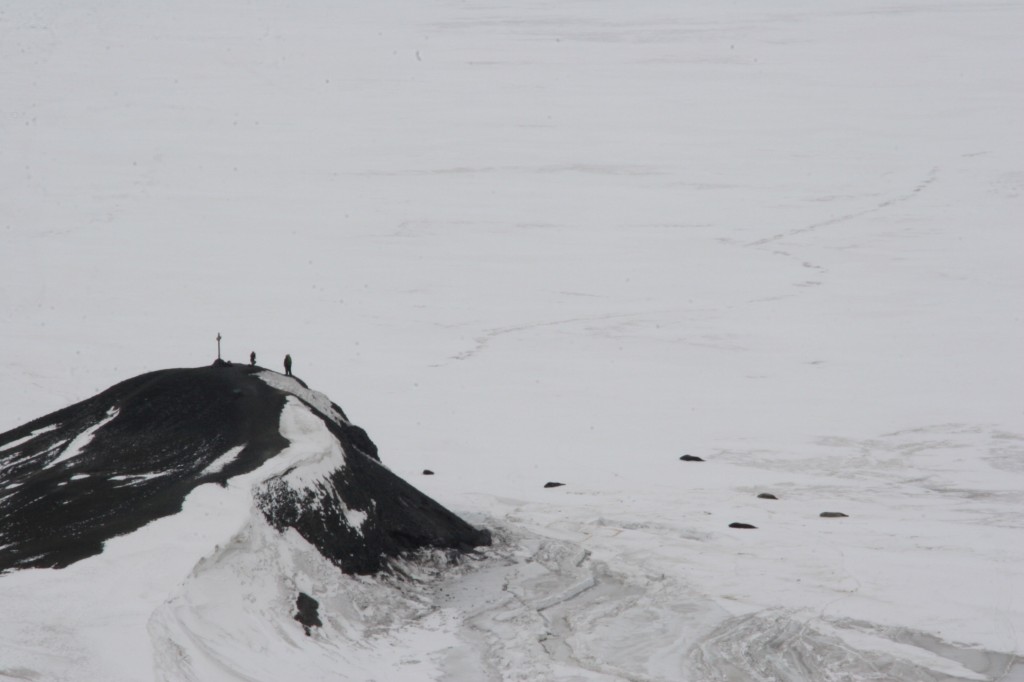
In the other direction, looking inland, we could often see the station, which sprawls quite a bit. This station is the logistical hub for all the field parties that go forth from here (ranging from geologists to biologists to glaciologists to, yes, astrophysicists) as well as the entire South Pole station. Most of the buildings you see in this picture house the people and equipment needed to provide that support. The peak population in the austral summer (about now, that is) is around 900 to 1000 people.
- the blue building houses the galley (as well as dorms and some administrative offices).
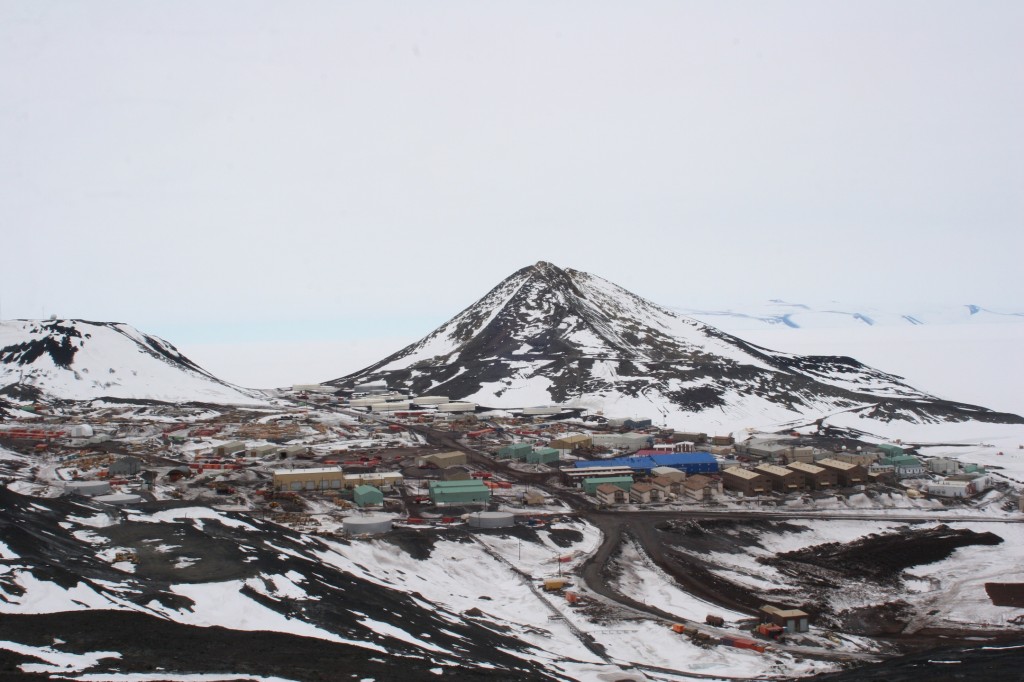
After reaching the peak of our hike at Arrival Heights, we circled back inland to return to town. All told a roughly 2 hour hike in the brisk wind, a great break from work.
